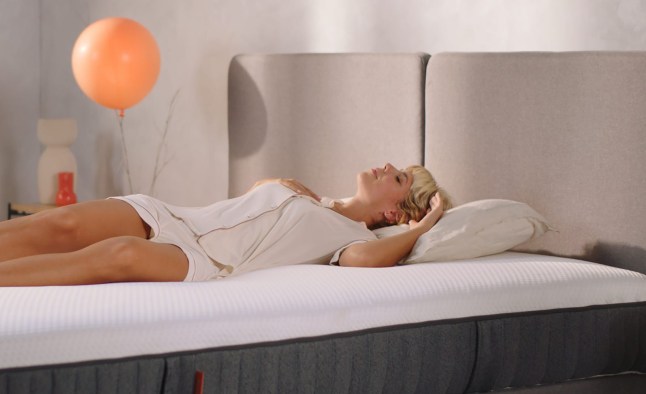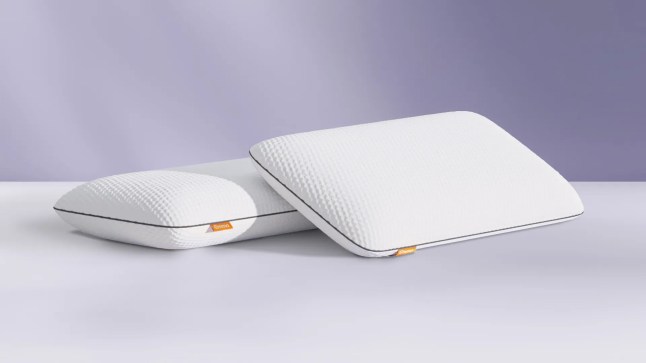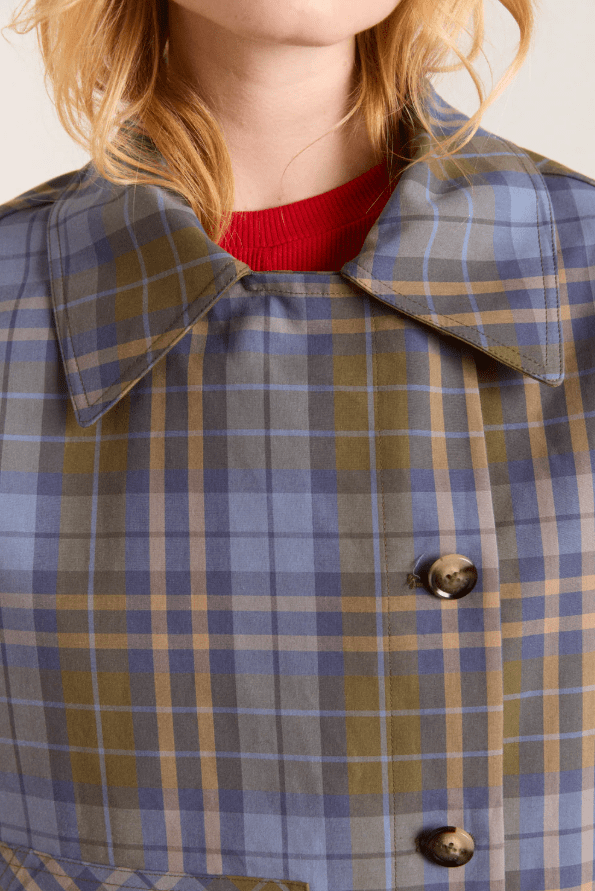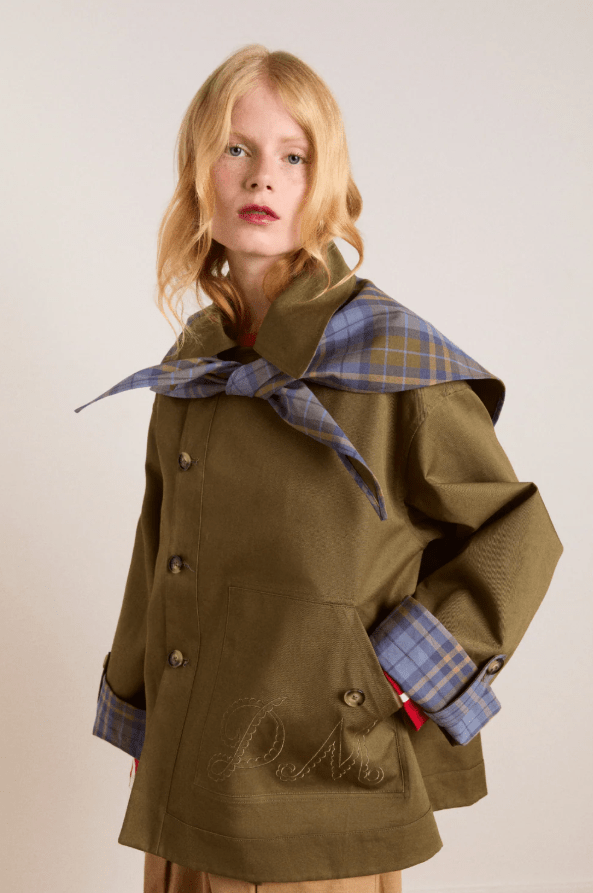30 Oct, 2025 | Admin | No Comments
Sleep better for less! Emma is giving away luxury pillows and duvets worth up to £345

Metro journalists select and curate the products that feature on our site. If you make a purchase via links on this page we will earn commission – learn more
The clocks have turned back, the nights have drawn in and the temperatures have plummeted – and there’s never been a better time to make your bed the cosiest spot in the house.
We spend around a third of our life in bed so, it’s important to get your set up just right, and now’s your chance!
Emma Sleep is celebrating 10 years of better sleep and the award-winning mattress and bedding brand is giving away free gifts with selected products worth up to £345 until November 1 – so be quick!
There’s Premium Cloud Pillows, a Cloud Duvet and a waterproof mattress protector all up for grabs – all you need to do is add to basket.
Known for its innovative sleep technology and multi-award-winning mattresses, Emma’s mission is clear – to help you get a deeper, more restful night’s sleep.
After all, a lumpy or sagging mattress doesn’t just affect your rest, it can also impact your posture and long-term back health.
With over 1.3 million products sold across the UK, Emma knows a thing or two about what makes a good night’s sleep.
The brand’s clever designs use temperature-regulating materials, adaptive support layers and pressure-relieving foam to create the perfect balance between comfort and support.
And if you’re not sure which mattress is right for you, don’t worry. Emma offers a 200-night trial, giving you plenty of time to test it out at home and make sure it’s your perfect match.
You’ll also get a 10-year guarantee on your mattress and free delivery – win-win!
Just take a look at some of the products included in the giveaway and the free gifts you could bag!

Emma Hybrid Airgrid Mattress
The Emma Hybrid AirGrid Mattress combines cooling AirGrid® technology, pressure-relieving foam and responsive pocket springs for the perfect balance of comfort and support. Includes free gifts worth up to £326 – get Cloud Pillows, a Waterproof Mattress Protector and a Cloud Duvet with your mattress for your best sleep yet.

Emma Hybrid Premium Mattress
Sleep deeper with the Emma Hybrid Premium Mattress, featuring cooling layers, adaptive foam and pocket springs for full-body support and optimal spinal alignment. Motion-isolating technology means you won’t feel a thing when your partner tosses or turns, so you can drift off faster and stay asleep longer. Includes a free Premium Cloud Pillow worth £80.

Emma Premium Mattress Topper
Give your mattress an instant upgrade with the Emma Premium Mattress Topper, designed to add comfort and extra support for a deeper, more restful sleep. The pressure-relieving foam and breathable layers help keep you cool, cushioned and perfectly supported all night long. Includes a free Premium Cloud Pillow worth £80 – get this limited offer and enjoy better sleep.
Ready to get a restful night’s sleep and save yourself some cash with Emma’s birthday bundle giveaway? Us too.
Follow Metro across our social channels, on Facebook, Twitter and Instagram
Share your views in the comments below
29 Oct, 2025 | Admin | No Comments
Princess Kate's fishnet tights and mini dress could be her most iconic outfit yet
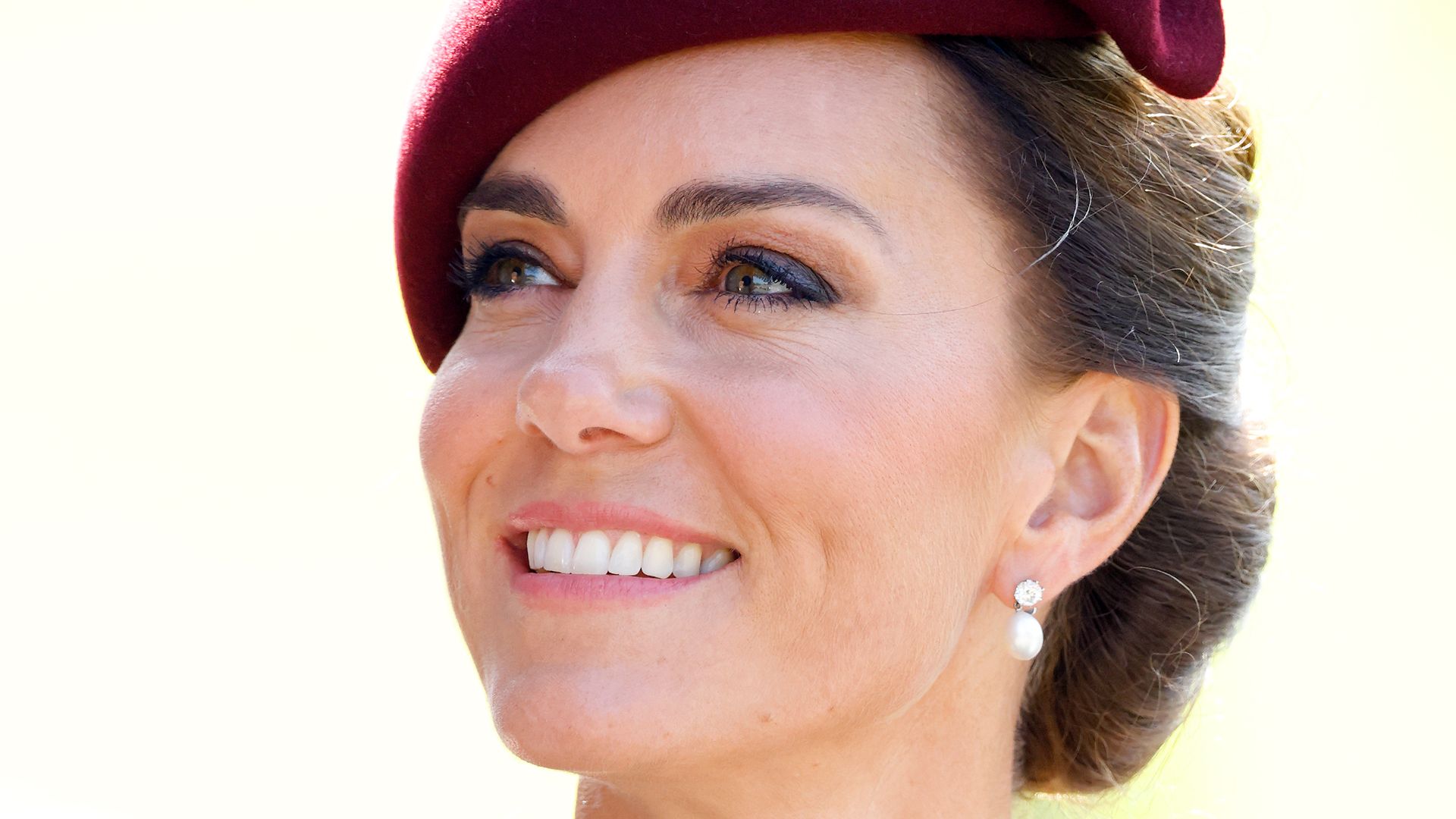
The Princess of Wales is known for her nude tights, but back in 2007, before she was married to Prince William, she actually wore fishnet tights on a night out at Mahiki, London.
29 Oct, 2025 | Admin | No Comments
Iman, 70, stuns fans in Valentino dress she first sported a decade ago

Iman attended the WWD Honors in New York on Tuesday, October 28 in a Valentino gown that she first wore in 2007.
29 Oct, 2025 | Admin | No Comments
Are you eligible for an energy bill discount this winter? Government urges certain households to act
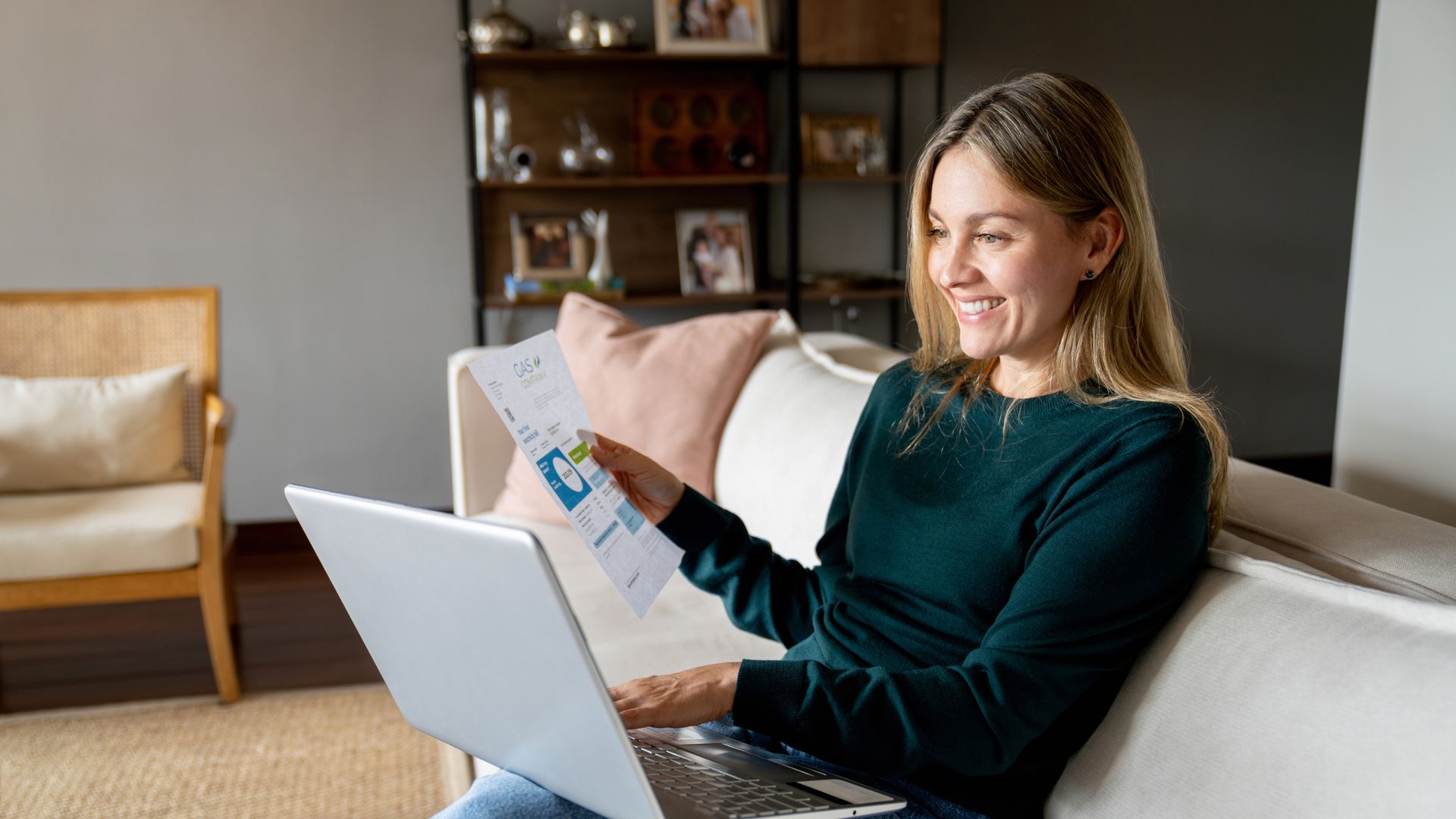
The energy price cap has risen, and winter is upon us, but the government is issuing a £150 discount for certain households
29 Oct, 2025 | Admin | No Comments
Princess Eugenie slips under the radar wearing an 'inconspicuous' outfit in Paris
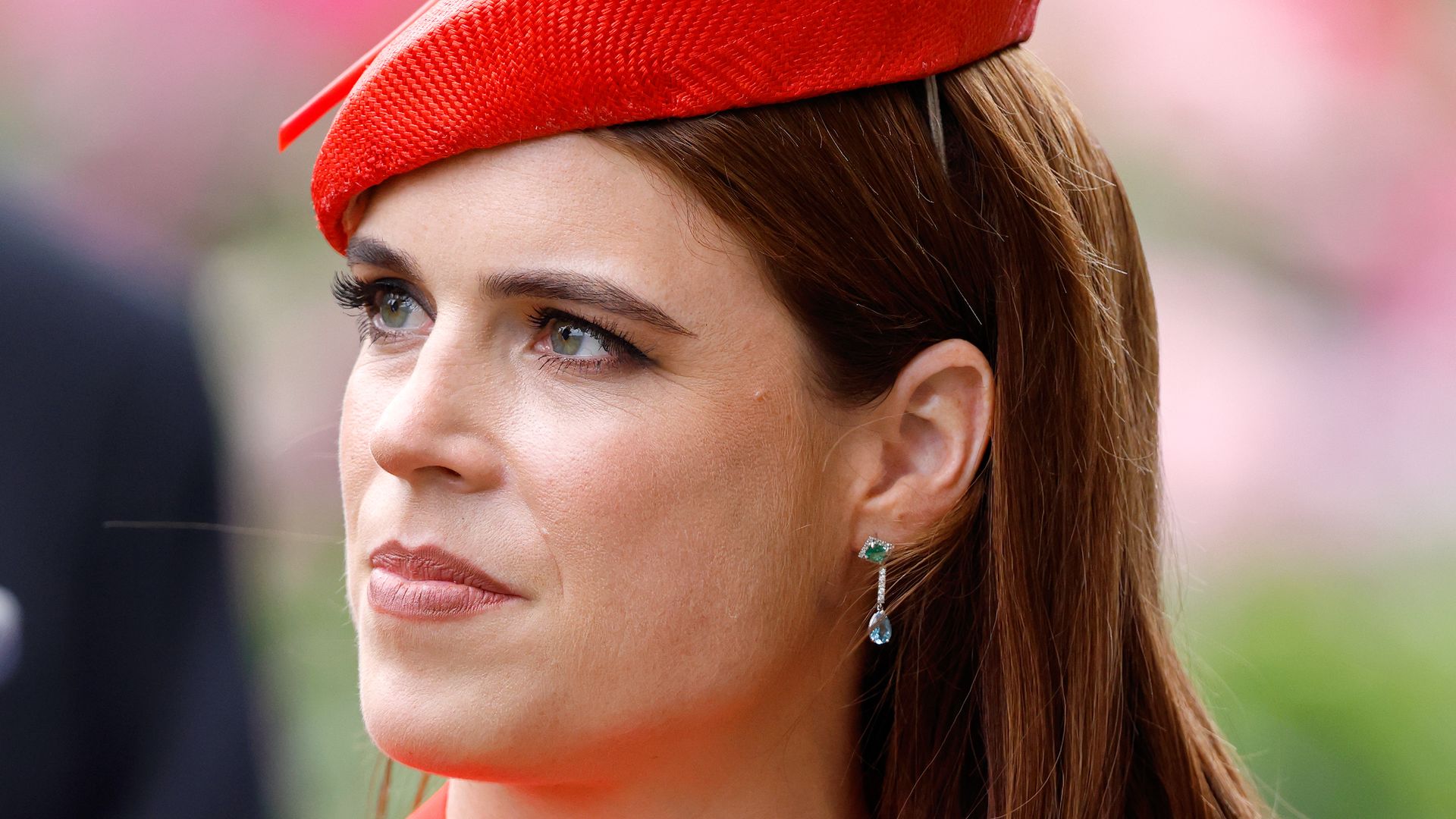
Prince Andrew’s youngest daughter, Princess Eugenie, was spotted in Paris on a girls’ trip with some friends, wearing a pair of designer sunglasses and a denim dress.
Mark Wahlberg has purchased a $37 million mansion located in the exclusive gated community of Stone Creek Ranch in South Florida.
29 Oct, 2025 | Admin | No Comments
Princess Charlene re-emerges with 'liberating' hair transformation
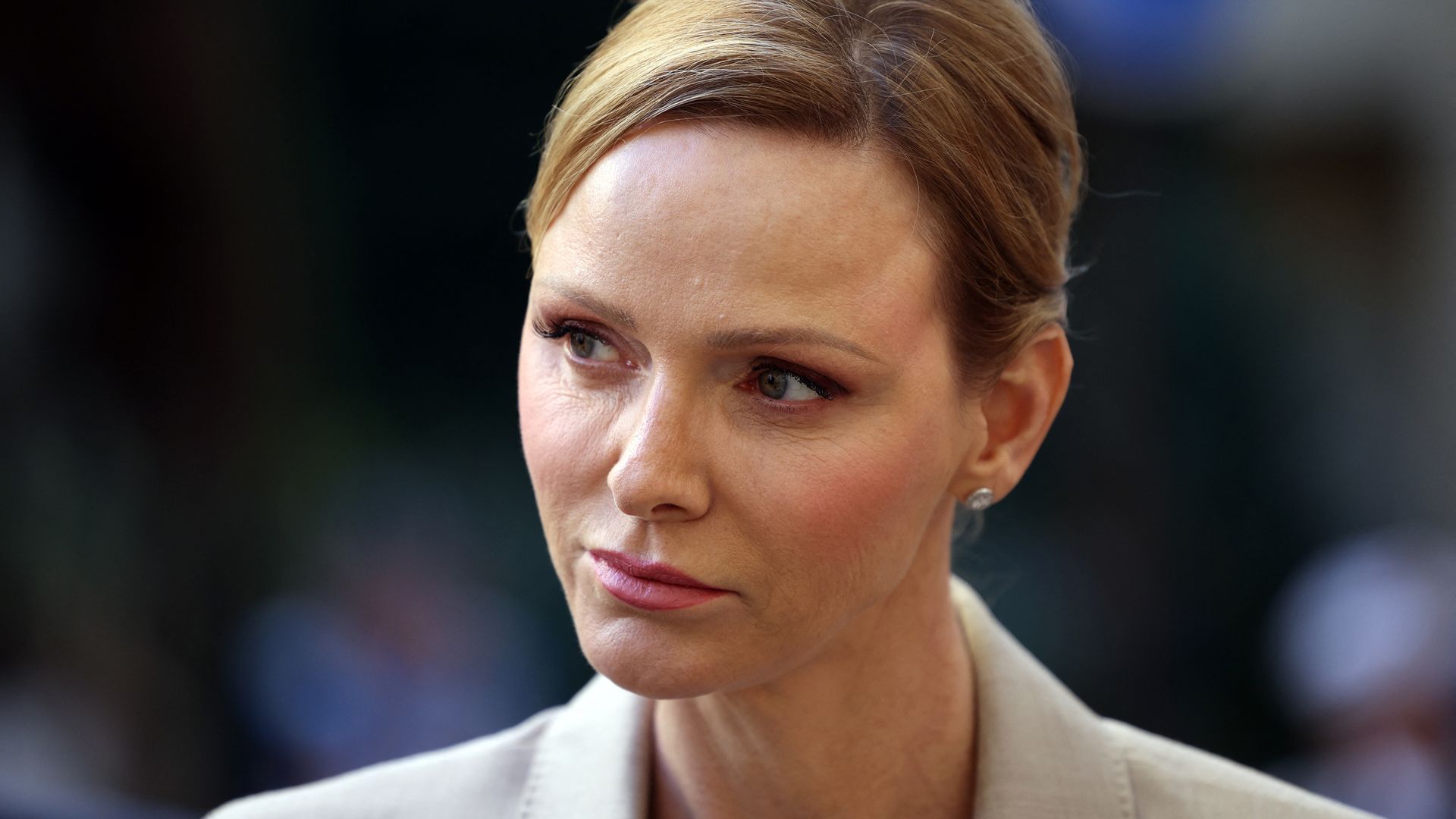
Princess Charlene of Monaco re-emerges with a ‘liberating’ hair transformation at the presentation for Monaco’s new police canine unit on Monday, 27 October
29 Oct, 2025 | Admin | No Comments
This viral trench coat is basically two jackets in one – and it’s selling fast
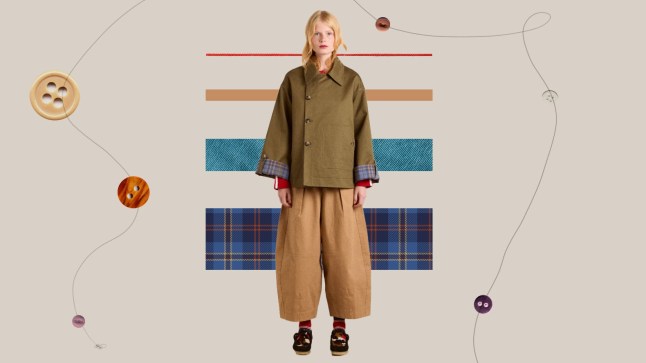
Metro journalists select and curate the products that feature on our site. If you make a purchase via links on this page we will earn commission – learn more
Autumn has arrived and it’s quite possibly our favourite season as it means we can wear the timeless outerwear staple – the trench coat.
There is an abundance of trench coats available to shop, but there is one in particular we have been desperately waiting to get our hands on – Damson Madder’s Jerry Trench Coat.
The Jerry Trench Coat has gone viral following the success of the brand’s Mercedes Bow coat. The Jerry Trench is a reversible jacket, and is essentially two coats in one, so it’s unsurprising it has sold out.
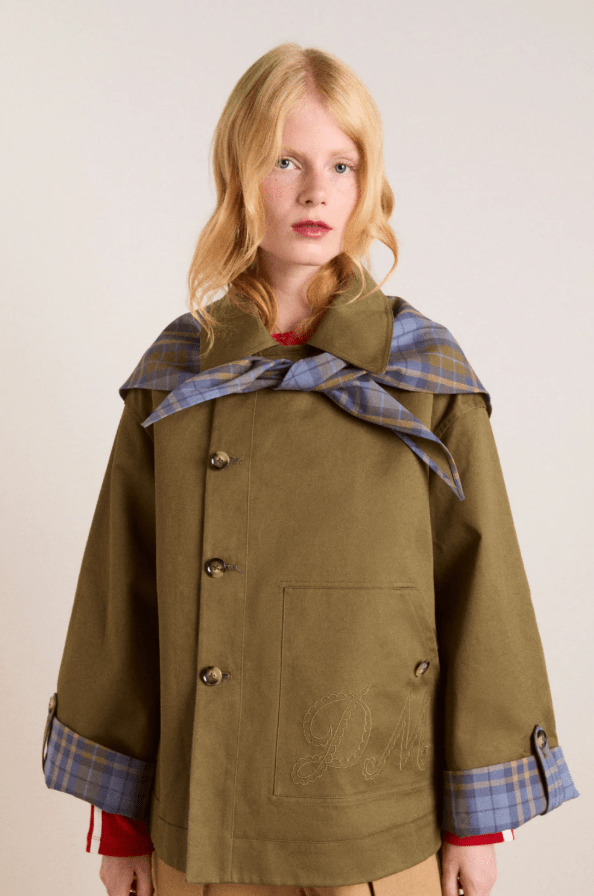
Damson Madder Jerry Trench Coat
Crafted from 100% responsibly sourced cotton, this reversible trench coat can be worn with the khaki colour block or the checked side. It features wide long sleeves, a tight collar, and button front fastening that is angled off-centre. It also features a large patch pocket with the brand embroidered on top, as well as a detachable collar that can be worn as a scarf or neckerchief.Available in UK sizes 6 to 20. Fits true to size.
pre-order reversible jerry crop trench coat in olive for £145
The Reversible Jerry Crop Trench may be listed as a cropped jacket, but it is actually short length as it falls to the hips – not under the bust like the term “crop” typically refers to.
This fashion design features the classic details of the iconic trench coat, which includes a tight collar, button front fastening, and long sleeves.
However, Damson Madder is always ahead of the fashion curve and has put its own stylish stamp on the hot outerwear staple. The jacket’s front button fastening is off centre, the sleeves are slightly fluted, and the coat also boasts a large front pocket with the brand’s logo embroidered on the front.
Of course, we can’t forget to mention the Jerry Trench Coat’s stand out feature – it’s reversible. This design features a plain khaki side, and the reverse is a blue, pink and khaki green check print.
This trench also features mock horn buttons, as well as a detachable collar that can be worn as a scarf or neckerchief, which is another hugely popular fashion trend.
We can always count on Damson Madder to craft a high quality outfit made from responsibly sourced fabric as this coat has been crafted from 100% organic cotton.
The Jerry Trench Coat is available in UK dress sizes 6 to 20, and Damson Madder recommends selecting your regular size for an oversize fit, especially if you are layering knitwear underneath.
There is just one catch. This stylish coat is available to pre-order and will ship the first week of December. So it could make the perfect Christmas gift for a friend, partner, or relative.
What we love about the humble trench coat, and this Damson Madder design, is how versatile it is. Team with a pair of barrel or wide leg jeans, a T-shirt or crisp poplin shirt, and loafers or heeled boots, alternatively style with a pair of leggings, wellington boots and a chunky roll neck jumper for cosy (yet chic) winter walks.
Follow Metro across our social channels, on Facebook, Twitter and Instagram
Share your views in the comments below
29 Oct, 2025 | Admin | No Comments
‘I knew my baby’s snuffy nose wasn’t a cold — I didn’t want the reality to be true’
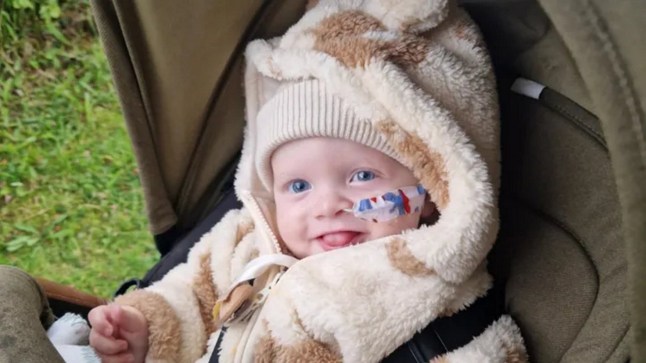

When Sophie Reddaway and Paul Acreman first noticed that their one-year-old son, Otto, was experiencing breathing difficulties and struggling to put on weight earlier this year, they were immediately worried.
Taking him to the doctors for an initial check-up turned into multiple trips to the GP — but medical professionals assured his parents, 25 and 27, that it was likely ‘just a cold.’
‘Probably after about four months, we noticed there was something wrong,’ Paul, a landscape gardener and tree surgeon from Okehampton in Devon, says.
‘He just had heavy, congested breathing and he was wheezing. It carried on and we took him to the GP four or five times and A&E about it to try and get it sorted but they just kept saying it was a cold and it would get better on its own. They said it was normal for a baby his age.’
Sophie also suspected that there was more to it, telling doctors that she didn’t believe he was ‘congested.’ She says that they ‘then asked if I was a first-time mum.’

However, things took a turn at a family barbecue when Otto’s auntie, 21-year-old Charlotte, spotted a lump on his neck in July 2025.
He was just 10 months old, and it was this symptom that led medics to suspect something more serious could be going on.
Sophie and Paul immediately took their son to A&E, which tests revealed something ‘abnormal.’
‘It was quite scary. The first thing I did was panic,’ Sophie recalls.
In August 2025, an ultrasound, multiple biopsies, blood tests and CT scans determined Otto’s diagnosis: stage four neuroblastoma, a form of nerve cancer impacting children specifically.
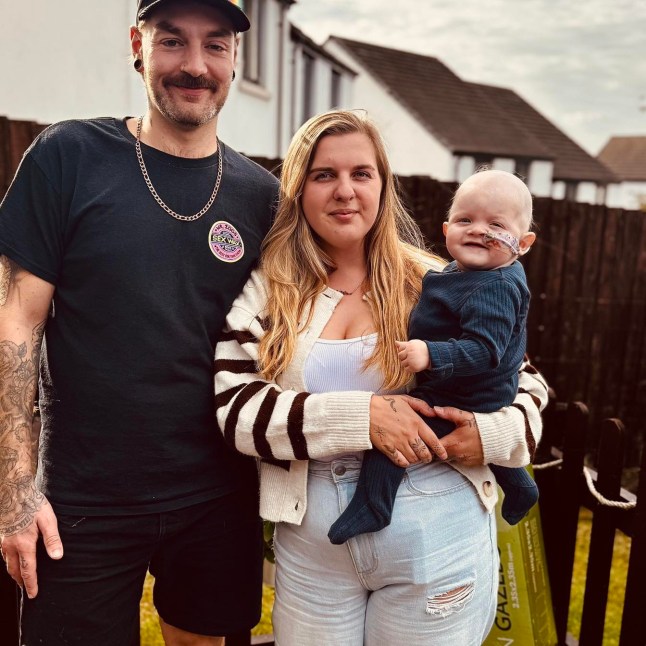
Following the extra tests, which took place at Bristol Royal Hospital for Children, Otto was fitted with a feeding tube, and had a line inserted into his heart.
Paul says of his son’s diagnosis: ‘I didn’t want it to be true. It was surreal. You hear about it happening to people but you don’t expect it to happen to you.’
Since the disease is so rare, Otto’s case was the first one the doctors in Exeter had seen in a decade. But in spite of it all, Otto, described as a ‘happy, smiley’ boy, is ‘coping with it really well.’
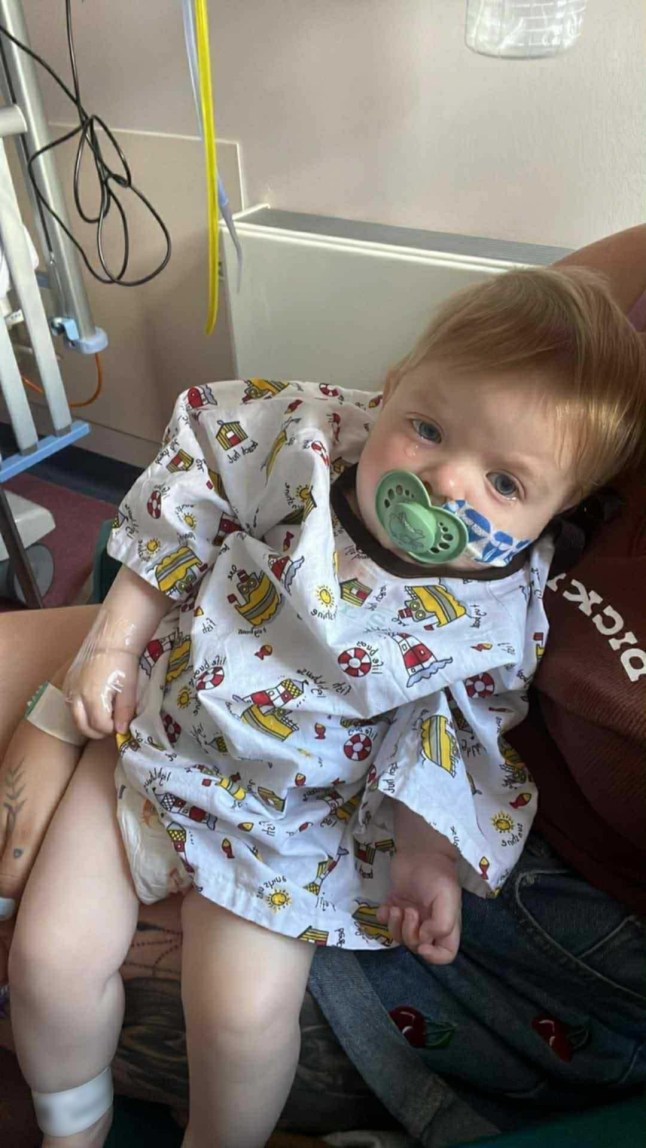
‘You wouldn’t think he’s going through what he is because he’s constantly happy and smiling,’ Sophie says.
Otto continues to go through treatment, and together, his parents have likened their life to ‘groundhog day,’ as Sophie has given up her job to care for Otto throughout his illness, while Paul has had to take time off work to attend numerous hospital trips.
Sophie also worries that Otto is being left ‘behind in many things,’ as he’s unable to walk or crawl, and he hasn’t yet developed teeth.
Paul reflects: ‘Pretty much since he’s been born, we’ve been in and out of hospital. We haven’t been able to spend time as a family.’
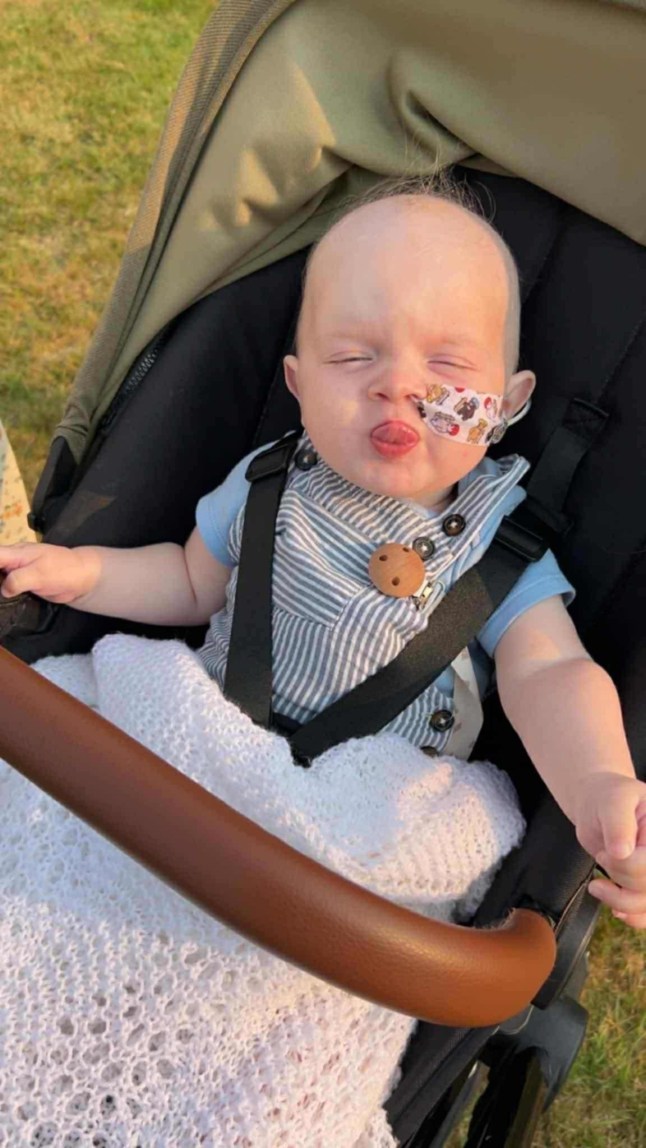
Left with just one income, they’ve had to borrow money. Paul has had to apply for advance payments from his workplace, noting that they’re also ‘falling behind with bills’ in spite of the extra help.
Together, the circumstances have led the family to create a GoFundMe, through which they’re appealing for help with travel costs, income loss and day-to-day expenses throughout Otto’s illness.
‘We’re on the phone constantly trying to get a cheaper tariff. It’s an added stress,’ he says, adding that the family’s situation has turned into a ‘nightmare,’ denying them of a ‘normal life.’
‘I worry that the money side of it could get worse.’
Do you have a story to share?
Get in touch by emailing MetroLifestyleTeam@Metro.co.uk.
29 Oct, 2025 | Admin | No Comments
Why Prince Andrew and Sarah Ferguson still live together 29 years after divorcing
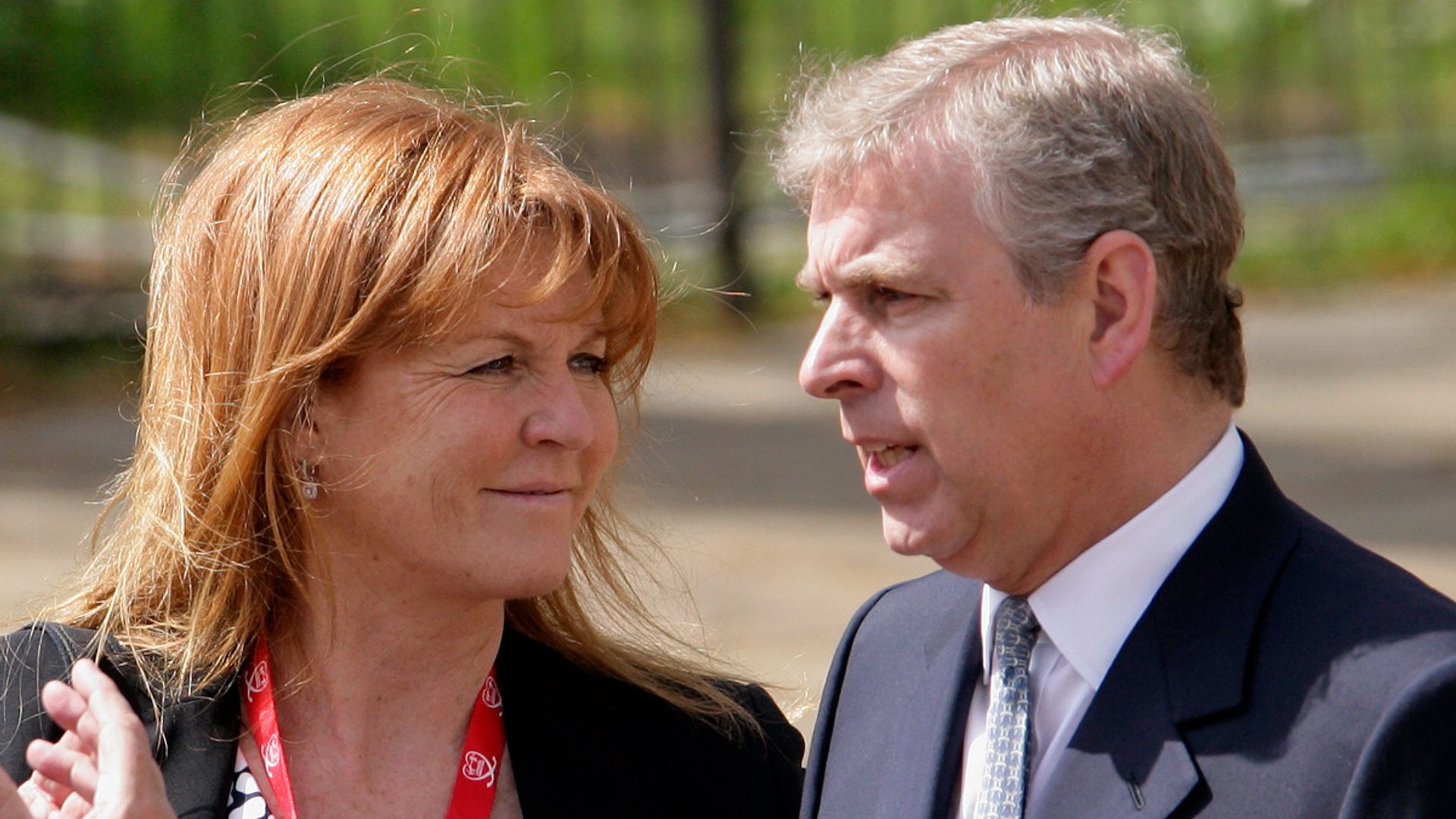
Sarah Ferguson and Prince Andrew remain at Royal Lodge: Why the former couple still live together more than 29 years after their divorce
